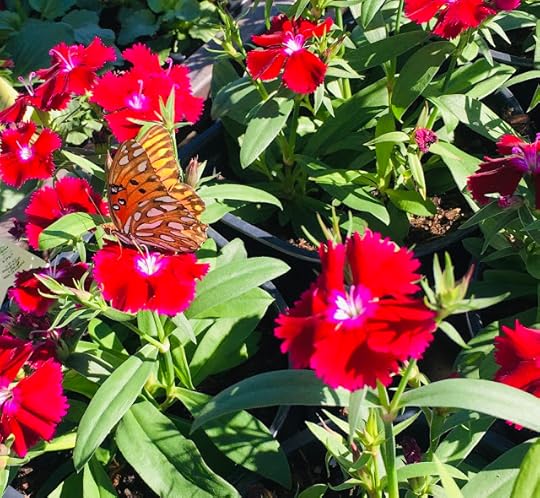What comes before the miracle

I once had the pleasure of meeting and getting to know Neta Jackson, the authoralong with her husband Dave of many historical fiction books that we used whenwe were home schooling (The Hero Tales series is amazing). But she also wrotethe Yada Yada Prayer Group novel series about an unlikely group of women thatcome together to pray for each other. Although I’d read almost everything elseshe’d written, I hadn’t read this series until recently. In it, one of thecharacters is careful to give God praise in advance of the answer. I know to dothis, but I’m not as intentional as I need to be. It was a great reminder andcame at just the right time.
In this season of Thanksgiving, when ourhearts are more turned to the Lord with gratitude, we make lists of the things forwhich we are thankful, which often include what we have.
Not often do we include what we don’t have.
I’ve shared this quote from Ann Voskampbefore, “Eucharisteo (Greek word for thanksgiving) always, always precedes themiracle. And who doesn’t need a miracle like that every day?”
Let’s all raise our hands.
Now, some might draw back from doing thisthinking they’re stepping into a name it and claim it theology. But the Bible includes many examples of thanksgiving before the miracle.
Before the feeding of the 4,000 in Matthew15, the disciples wondered, “Where could we get enough bread in this remoteplace to feed such a crowd?” They only had seven loaves of bread and a fewsmall fish. But Jesus had the crowd sit, and “He took the seven loaves and thefish, and when he had given thanks, he broke them and gave them to thedisciples, and they in turn to the people.”
The miracle was, “They all ate and weresatisfied. Afterward the disciples picked up seven basketfuls of broken piecesthat were left over.”
I always marvel they only had seven loavesto begin with, and afterward they gathered seven baskets of broken pieces—even breadto spare.
Thanksgiving preceded the miracle.
We may have our own seven loaves and a fewfish situations where there seems no possible answer—only an impossible answer. In thenatural, we do not tend toward thanksgiving in that circumstance, but when weturn our hearts toward the Lord giving thanks and praise, we are changed, andwhether or not God does what we desire at the onset, we have a greater sense ofHis presence. Doing this puts us in a different place of sharing in his joydespite what may be happening.
So, in this season of Thanksgiving, andreally every day, let’s be grateful for what we have and for what we don’t haveas well.
Thanks, Neta, for the reminder. I’m onbook two. Five more to go. Yay!! Lots of Yada Yada in my future.
(The picture of the gulf fritillary above was taken in a local nursery on November 10. I don't know how it got so far north, but what a wonder to see it that time of year. Felt like a miracle to me.)
var _gaq = _gaq || []; _gaq.push(['_setAccount', 'UA-24260977-1']); _gaq.push(['_trackPageview']); (function() { var ga = document.createElement('script'); ga.type = 'text/javascript'; ga.async = true; ga.src = ('https:' == document.location.protocol ? 'https://ssl' : 'http://www') + '.google-analytics.com/ga.js'; var s = document.getElementsByTagName('script')[0]; s.parentNode.insertBefore(ga, s); })();Beverly Varnado's most recent book is In Search of the Painted Bunting, a middle grade historical from Elk Lake Publishing, #1 in new releases in its category. She is also the author of several small town romances from Anaiah Press including her latest, A Season for Everything. All are available at Amazon. To explore the web version of One Ringing Bell, please visit bev-oneringingbell.blogspot.comTo sign up for her newsletter, go to http://eepurl.com/dHNdsX Beverly Varnado copyright 2023


